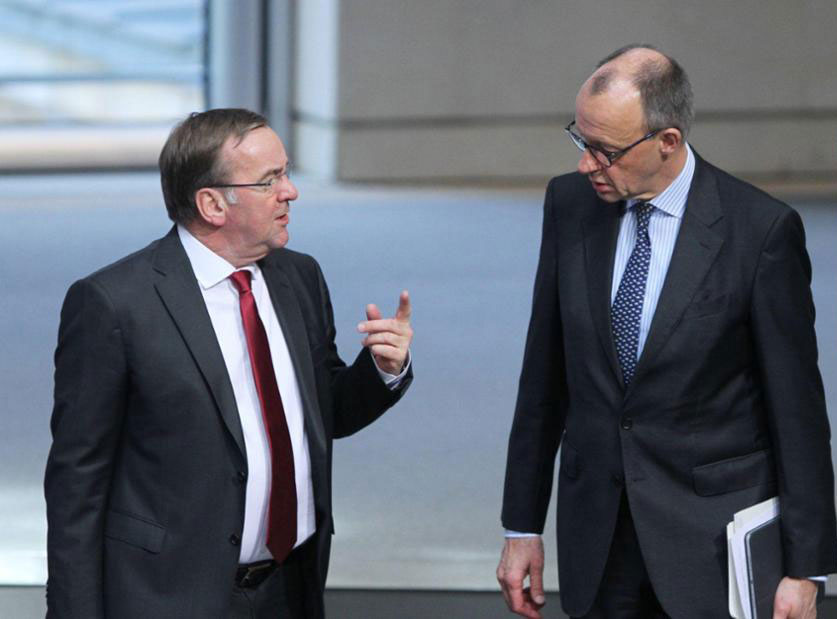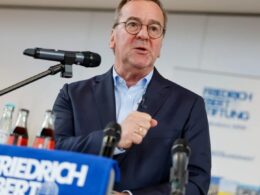Politico says that "Ukraine won big" in last Sunday’s German election, which was won by Friedrich Merz, a strong proponent
of bolstering Germany’s support for Ukraine. Merz announced on 24 February that his conservative alliance will pursue a two-party government with the center-left Social Democrats (SPD), with coalition negotiations already underway. Outgoing Chancellor Olaf Scholz, known for his reluctance to approve the transfer of Taurus missiles to Ukraine, will step down.
On 24 February, the third anniversary of Russia's ongoing full-scale invasion of Ukraine, Merz posted on X:
"Europe remains firmly on Ukraine's side. Now more than ever, we need to put Ukraine in a position of strength."
Politico says German Defense Minister Boris Pistorius, one of the SPD's most vocal Ukraine supporters, is expected to secure a position in the new government. Pistorius has emerged as one of Germany's most popular politicians and appears to be a compatible coalition partner for Merz.
"I see my role quite simply as someone who is in the leadership ranks of the party," Pistorius told German public broadcaster ARD on the election day's night.
As defense minister, Pistorius has advocated for billions in additional military support for Ukraine and reportedly favored sending long-range Taurus cruise missiles to Ukraine privately – a policy that outgoing Chancellor Olaf Scholz blocked but Merz openly supported.
Scholz, who positioned himself as the "peace chancellor" during the campaign, will not participate in coalition negotiations or the next government.
"I will not be a representative of the SPD in a federal government led by the CDU, nor will I negotiate," he stated during a televised discussion Sunday night.
Ukrainian officials have responded positively to the election results.
"A clear voice from the voters, and we see how important this is for Europe," Ukrainian President Volodymyr Zelenskyy said in his congratulatory message to Merz.
However, the new German government "will still have to contend with a larger pro-Russia contingent in the German parliament, including the Kremlin-friendly Alternative for Germany (AfD) party," which secured more than 20% of the vote.
Related:
- Rise of the right: elections in Germany culminate the decade-long drama
- Russia spreads fake videos to sway German elections toward pro-Russian AfD
- German election frontrunner accuses Trump of echoing Putin’s stance on Russia’s war in Ukraine
- Trump’s mineral deal demands higher GDP share from Ukraine than Germany’s WWI reparations
- Discussions on German peacekeepers in Ukraine irritating and premature, Scholz believes
- Germany announces new military aid package for Ukraine
- Germany allows extradition to Ukraine of man who fled abroad to avoid serving
- German opposition leader Merz: strength, not weakness, to end war in Ukraine
- Scholz’s party included ban on Taurus long-range missiles for Ukraine in its pre-election program




